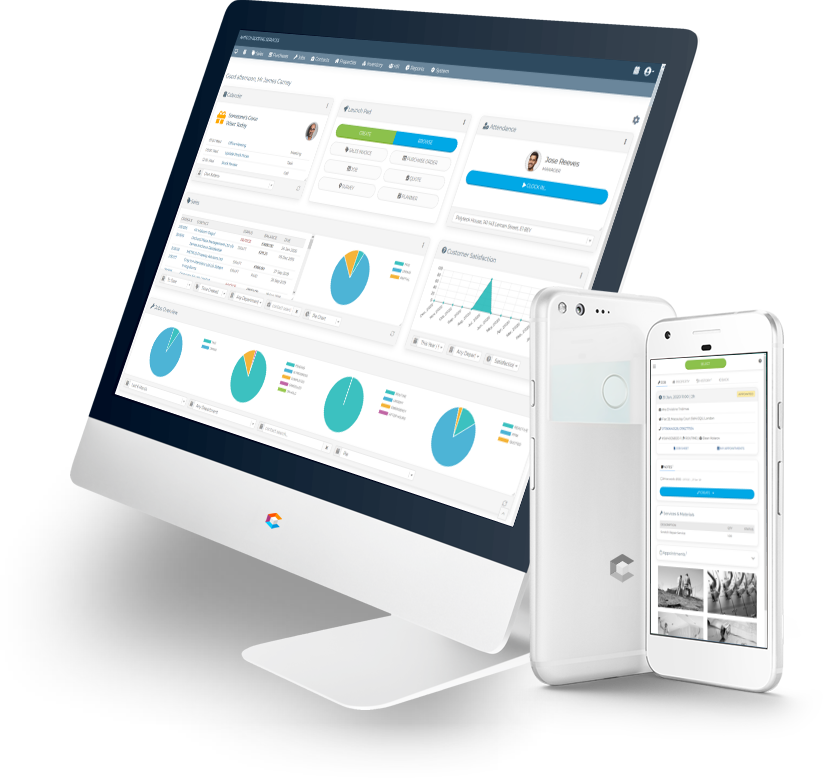Building Services & Property Maintenance
Streamlining Building and Property Maintenance with ERP Software
In the building and property maintenance industry, efficient management is crucial to deliver high-quality services and maintain customer satisfaction. Businesses in this sector face unique challenges, from coordinating maintenance tasks to managing a diverse inventory of materials and tools. Enterprise Resource Planning (ERP) software offers a comprehensive solution to these challenges by integrating various business processes into a single, unified system. This article explores how ERP software can transform the management of businesses in building and property maintenance services and sales.
The Role of ERP in Building and Property Maintenance
ERP software is designed to consolidate and automate the various functions within a business, providing real-time data and insights that enhance decision-making and operational efficiency. For building and property maintenance companies, an ERP system can significantly improve coordination, reduce manual errors, and ensure the seamless execution of tasks.
Key Features of ERP Software for Building and Property Maintenance Businesses
Work Order Management: Efficiently managing work orders is essential in the maintenance industry. ERP software can automate the creation, assignment, and tracking of work orders, ensuring that tasks are completed on time and to the required standard. This system can also prioritize urgent maintenance requests, minimizing downtime for clients.
Asset Management: Maintaining a comprehensive record of all assets, including buildings, equipment, and tools, is critical. ERP systems offer robust asset management features that track the condition, location, and maintenance history of assets. This helps in planning preventive maintenance, extending asset lifespan, and reducing unexpected breakdowns.
Inventory Management: Effective inventory management is vital for maintaining an adequate supply of materials and tools needed for maintenance tasks. An ERP system can automate inventory tracking, ensuring that stock levels are optimized and materials are readily available when needed. This reduces the risk of project delays due to stockouts and helps manage costs by avoiding overstocking.
Scheduling and Dispatch: Coordinating the schedules of maintenance personnel can be complex. ERP software streamlines this process by providing a centralized platform for scheduling and dispatching technicians. The system can assign tasks based on technician availability, location, and skill set, ensuring efficient resource utilization and timely service delivery.
Customer Relationship Management (CRM): Building strong relationships with clients is essential for repeat business and referrals. ERP software with integrated CRM capabilities allows businesses to track customer interactions, manage service requests, and personalize communication. This helps in providing a tailored customer experience and fostering long-term client relationships.
Financial Management: Accurate financial management is crucial for profitability and compliance. ERP systems offer robust financial modules that handle accounting, budgeting, billing, and financial reporting. By automating these processes, businesses can reduce errors, improve financial visibility, and ensure compliance with industry regulations.
Analytics and Reporting: Data-driven decision-making is essential in today’s competitive landscape. ERP software provides powerful analytics and reporting tools that offer insights into various aspects of the business, from financial performance to operational efficiency. These insights enable businesses to make informed decisions, optimize processes, and identify growth opportunities.
Benefits of Implementing ERP Software
Increased Efficiency: By automating routine tasks and integrating various business processes, ERP software significantly boosts operational efficiency. This allows employees to focus on more strategic activities, improving overall productivity.
Enhanced Accuracy: Manual data entry and fragmented systems are prone to errors. ERP software minimizes these errors by providing a single source of truth, ensuring data accuracy and consistency across the organization.
Improved Customer Service: With real-time access to customer information, work order status, and inventory levels, businesses can respond more quickly to customer inquiries and provide accurate updates. This enhances the customer experience and builds trust.
Scalability: As businesses grow, their operational needs become more complex. ERP software is scalable, allowing businesses to add new modules and functionalities as needed. This ensures that the system can grow with the business, supporting expansion and diversification.
Regulatory Compliance: Staying compliant with industry regulations is essential to avoid penalties and legal issues. ERP software helps businesses adhere to regulatory requirements by providing tools for accurate record-keeping, reporting, and auditing.
Choosing the Right ERP Solution
Selecting the right ERP solution is crucial for maximizing its benefits. Businesses should consider factors such as industry-specific features, ease of use, scalability, and vendor support. Additionally, involving key stakeholders in the selection process and conducting thorough needs assessments can ensure that the chosen ERP system aligns with the business’s goals and requirements.
In the building and property maintenance services industry, ERP software is a transformative tool. By streamlining operations, improving accuracy, and providing valuable insights, ERP systems enable businesses to enhance efficiency, boost customer satisfaction, and drive growth. As technology continues to evolve, businesses that leverage ERP software will be well-positioned to stay ahead of the competition and achieve long-term success.

